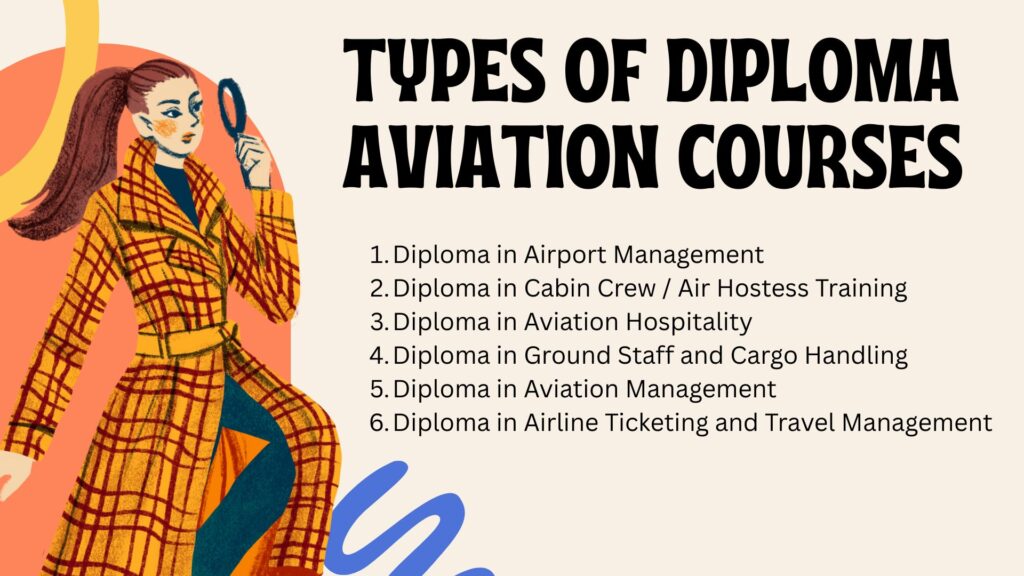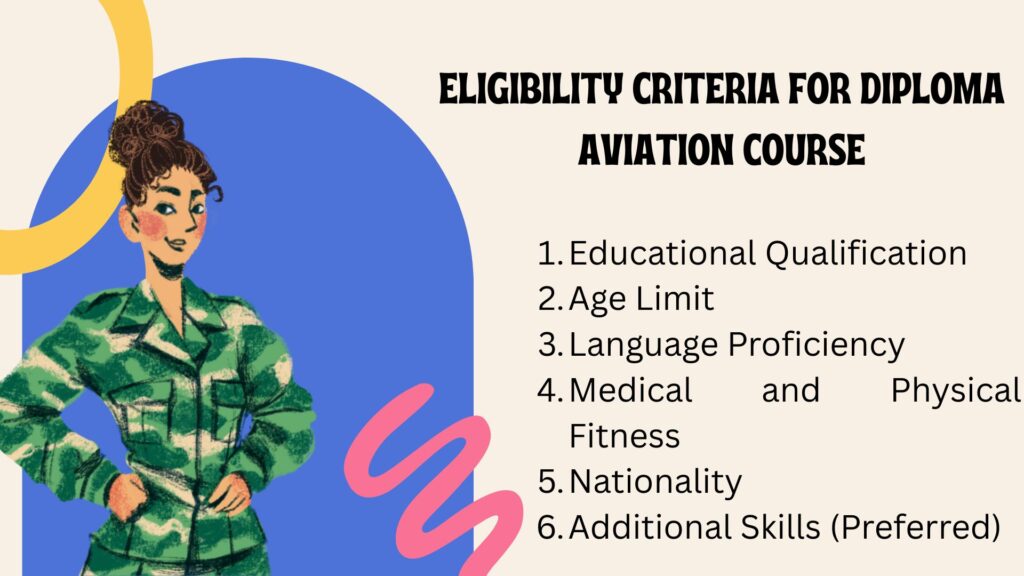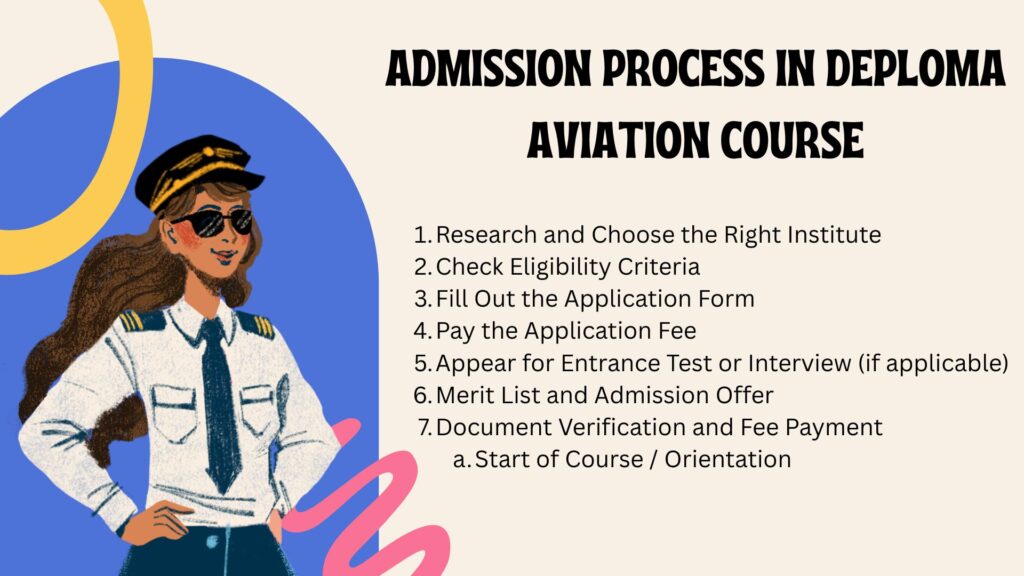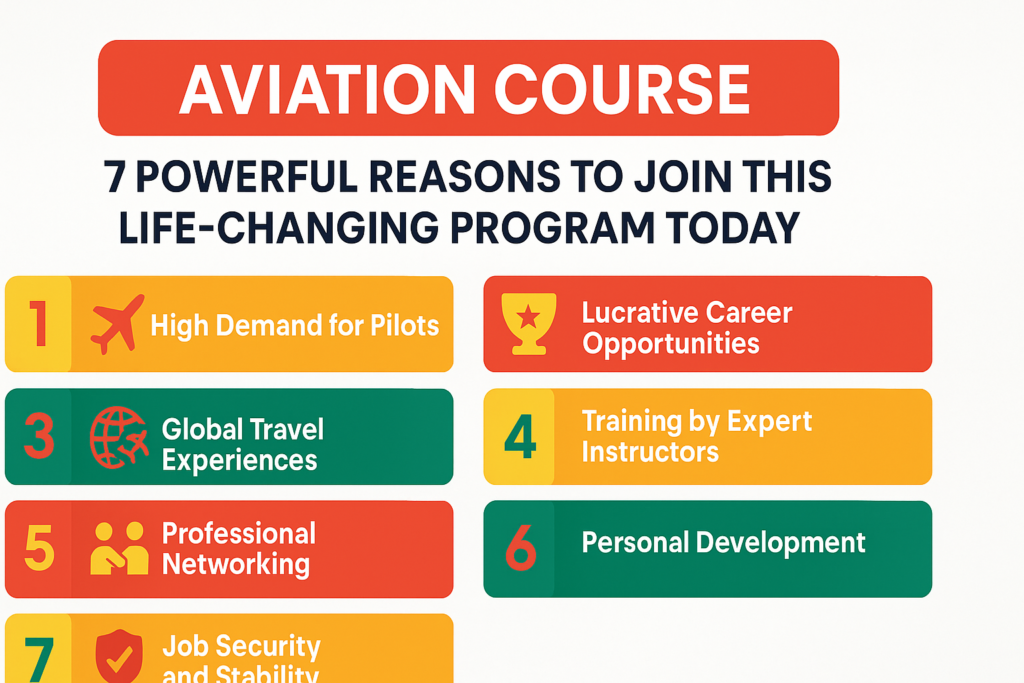Top Diploma Aviation Courses to Launch Your Future

Table of Contents
Image of post regarding course
Introduction to Diploma Aviation Courses
An aviation course at the diploma level offers a fast-track entry into the exciting world of aviation. These programs are designed to equip students with practical skills and industry knowledge required for careers in airport management, cabin crew services, ground staff operations, and more. A diploma is a ideal for students who want to join the aviation industry soon after completing their 12th grade, without pursuing a full-fledged degree. With the growing demand for skilled professionals in the sector, choosing the right course can open doors to a high-flying career with global opportunities.
Definition: Diploma aviation courses are short to mid-term educational programs focused on providing technical and practical knowledge for careers in the aviation industry.
Objective: To prepare students for immediate employment in various aviation sectors such as ground operations, cabin crew, air cargo, airport management, and aviation safety.
Duration: Typically ranges from 6 months to 2 years depending on the specialization and institute.
Types of Diploma Aviation Courses

An aviation course at the diploma level offers multiple specializations based on the area of interest and career goals. Here are the most popular types of diploma aviation courses:
Diploma in Airport Management
This aviation course focuses on the smooth functioning of airport operations, covering topics like airport security, cargo handling, air traffic control basics, and airport customer service.Diploma in Cabin Crew / Air Hostess Training
Designed for students aspiring to become flight attendants includes training in in-flight safety, emergency procedures, communication skills, and grooming.Diploma in Aviation Hospitality
This combines hospitality and aviation training, preparing students to deliver top-notch customer service in airline lounges, airports, and during flights.Diploma in Ground Staff and Cargo Handling
This course trains students in ground operations such as passenger assistance, baggage handling, and cargo management, making it a vital for airport ground crew roles.Diploma in Aviation Management
This is ideal for those looking to enter the management side of the aviation industry, covering airline finance, HR, marketing, and operations.Diploma in Airline Ticketing and Travel Management
This course focuses on ticket reservation systems, fare calculation, and travel documentation, making it a popular course for careers in travel agencies and airline offices.
olffer image
Eligibility Criteria for Diploma Aviation Course

To enroll in a diploma aviation course, students must meet the following basic eligibility requirements:
Educational Qualification
Candidates must have completed their 10+2 (Class 12) from a recognized board.
Some institutes may require a minimum percentage (usually 50% or above).
Age Limit
The minimum age to apply is generally 17 years.
Some courses, especially cabin crew training, may have an upper age limit (typically around 25 years).
Language Proficiency
Proficiency in English is important, as it is the primary language used in the aviation industry.
Some institutes may conduct an English language test or interview.
Medical and Physical Fitness
Applicants should be medically and physically fit, with good eyesight and hearing.
For cabin crew and similar roles, height and weight requirements may apply (e.g., minimum height of 155 cm for females, 170 cm for males).
Nationality
Most institutes accept Indian nationals, though international students may also be eligible in certain cases.
Additional Skills (Preferred)
Good communication skills, confidence, and a presentable personality are often preferred and can enhance your chances of selection.
Career Opportunities After Diploma Aviation Courses

olffer image
Completing courses at the diploma level can open doors to a wide range of career options in the aviation and travel industries. Here are some of the most popular career paths:
Cabin Crew / Air Hostess
Graduates of cabin crew-focused work as flight attendants, ensuring passenger safety and delivering exceptional in-flight service.Airport Ground Staff
A common outcome this role involves assisting passengers, handling baggage, and supporting airport operations on the ground.Cargo and Baggage Handling Executive
These professionals manage the loading, unloading, and documentation of cargo and luggage at airports and airlines.Airport Manager or Supervisor
After completing management-focused, candidates can work in roles that oversee airport operations and staff coordination.Airline Ticketing Executive
These roles involve handling flight reservations, issuing tickets, and providing fare and schedule information to customers.Customer Service Executive (Aviation Sector)
Graduates of work in customer-facing roles at airline counters, resolving queries and ensuring smooth passenger experiences.Travel and Tourism Executive
Some include modules on travel management, enabling graduates to work in travel agencies and tourism companies.Ramp Officer / Safety Officer
These professionals ensure safety protocols are followed on the airside, including aircraft parking, fueling, and passenger boarding
Admission Process in deploma aviation course

Getting admission into a diploma aviation course is a straightforward process. Here are the key steps involved:
Research and Choose the Right Institute
Look for reputed aviation institutes or training academies.
Check for accreditation, placement records, and course structure.
Check Eligibility Criteria
Ensure you meet the basic requirements such as 10+2 qualification, age limit, and physical fitness.
Fill Out the Application Form
Visit the official website of the selected institute.
Fill out the diploma aviation course application form online or offline.
Submit required documents (mark sheets, ID proof, photos, etc.).
Pay the Application Fee
Most institutes charge a nominal application fee, which can be paid online or through bank transfer.
Appear for Entrance Test or Interview (if applicable)
Some institutes may conduct an entrance exam or personal interview to assess communication skills, aptitude, and personality.
Merit List and Admission Offer
Based on eligibility and performance, the institute releases a merit list or directly offers admission.
Document Verification and Fee Payment
Submit original documents for verification.
Pay the first installment of the course fee to confirm your seat.
Start of Course / Orientation
Once admission is confirmed, you’ll receive details about the orientation schedule and course commencement date.



